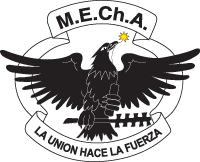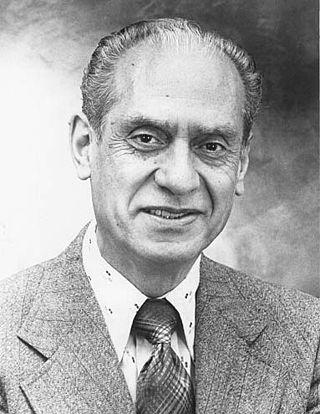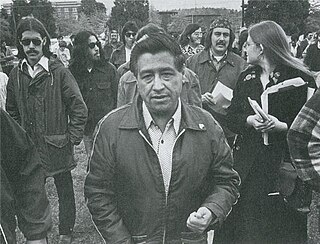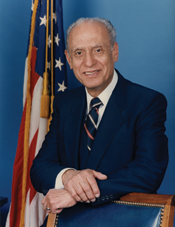
Chicano or Chicana is an ethnic identity for Mexican Americans who have a non-Anglo self-image, embracing their Mexican Native ancestry. Chicano was originally a classist and racist slur used toward low-income Mexicans that was reclaimed in the 1940s among youth who belonged to the Pachuco and Pachuca subculture. In the 1960s, Chicano was widely reclaimed in the building of a movement toward political empowerment, ethnic solidarity, and pride in being of indigenous descent. Chicano developed its own meaning separate from Mexican American identity. Youth in barrios rejected cultural assimilation into the mainstream American culture and embraced their own identity and worldview as a form of empowerment and resistance. The community forged an independent political and cultural movement, sometimes working alongside the Black power movement.

M.E.Ch.A. is a US-based organization that seeks to promote Chicano unity and empowerment through political action. The acronym of the organization's name is the Chicano word mecha, which is the Chicano pronunciation of the English word match and therefore symbolic of a fire or spark; mecha in Spanish means fuse or wick. The motto of MEChA is 'La Union Hace La Fuerza'.

The Reconquista ("reconquest") is a term to describe an irredentist vision by different individuals, groups, and/or nations that the Southwestern United States should be politically or culturally returned to Mexico. Known as advocating a Greater Mexico, such opinions are often formed on the basis that those territories were claimed by Spain for centuries and then by Mexico from 1821 until they were annexed by the United States during the Texas Annexation (1845) and the Mexican Cession (1848) because of the Mexican–American War.

Edward Ross Roybal was a Mexican-American politician. A Democrat, he was a member of the Los Angeles City Council from 1949 to 1962 and of the U.S. House of Representatives from 1963 to 1993.

The Royal Chicano Air Force (RCAF) is a Sacramento, California-based art collective, founded in 1970 by Ricardo Favela, José Montoya and Esteban Villa. It was one of the "most important collective artist groups" in the Chicano art movement in California during the 1970s and the 1980s and continues to be influential into the 21st century.

Rodolfo "Corky" Gonzales was a Mexican-American boxer, poet, political organizer, and activist. He was one of many leaders for the Crusade for Justice in Denver, Colorado. The Crusade for Justice was an urban rights and Chicano cultural urban movement during the 1960s focusing on social, political, and economic justice for Chicanos. Gonzales convened the first-ever Chicano Youth Liberation Conference in 1968, which was poorly attended due to timing and weather conditions. He tried again in March 1969, and established what is commonly known as the First Chicano Youth Liberation Conference. This conference was attended by many future Chicano activists and artists. It also birthed the Plan Espiritual de Aztlán, a pro-indigenist manifesto advocating revolutionary Chicano nationalism and self-determination for all Chicanos. Through the Crusade for Justice, Gonzales organized the Mexican American people of Denver to fight for their cultural, political, and economic rights, leaving his mark on history. He was honored with a Google Doodle in continued celebration of National Hispanic Heritage Month in the United States on 30 September 2021.

Chicanismo emerged as the cultural consciousness behind the Chicano Movement. The central aspect of Chicanismo is the identification of Chicanos with their Indigenous American roots to create an affinity with the notion that they are native to the land rather than immigrants. Chicanismo brought a new sense of nationalism for Chicanos that extended the notion of family to all Chicano people. Barrios, or working-class neighborhoods, became the cultural hubs for the people. It created a symbolic connection to the ancestral ties of Mesoamerica and the Nahuatl language through the situating of Aztlán, the ancestral home of the Aztecs, in the southwestern United States. Chicanismo also rejected Americanization and assimilation as a form of cultural destruction of the Chicano people, fostering notions of Brown Pride. Xicanisma has been referred to as an extension of Chicanismo.

The Chicano Movement, also referred to as El Movimiento, was a social and political movement in the United States that worked to embrace a Chicano/a identity and worldview that combated structural racism, encouraged cultural revitalization, and achieved community empowerment by rejecting assimilation. Chicanos also expressed solidarity and defined their culture through the development of Chicano art during El Movimiento, and stood firm in preserving their religion.

Partido Nacional de La Raza Unida was a Hispanic political party centered on Chicano (Mexican-American) nationalism. It was created in 1970 and became prominent throughout Texas and Southern California. It was started to combat growing inequality and dissatisfaction with the Democratic Party that was typically supported by Mexican-American voters. After its establishment in Texas, the party launched electoral campaigns in Colorado, Arizona, New Mexico, and California, though it only secured official party status for statewide races in Texas. It did poorly in the 1978 Texas elections and dissolved when leaders and members dropped out.
Nativo Lopez-Vigil was an American political leader and immigrant rights activist in Southern California. Lopez was a national president of the Mexican American Political Association and the national director of the Hermandad Mexicana Latinoamericana, a community service and advocacy organization for Mexican and Latin American immigrants throughout the United States.

Chicano studies, also known as Chicano/a studies, Chican@ studies, or Xicano studies originates from the Chicano Movement of the late 1960s and 1970s, and is the study of the Chicano and Latino experience. Chicano studies draws upon a variety of fields, including history, sociology, the arts, and Chicano literature. The area of studies additionally emphasizes the importance of Chicano educational materials taught by Chicano educators for Chicano students.
Las Adelitas de Aztlán was a short-lived Mexican American female civil rights organization that was created by Gloria Arellanes and Gracie and Hilda Reyes in 1970. Gloria Arellanes and Gracie and Hilda Reyes were all former members of the Brown Berets, another Mexican American Civil rights organization that had operated concurrently during the 1960s and 1970s in the California area. The founders left the Brown Berets due to enlarging gender discrepancies and disagreements that caused much alienation amongst their female members. The Las Adelitas De Aztlan advocated for Mexican-American Civil rights, better conditions for workers, protested police brutality and advocated for women's rights for the Latino community. The name of the organization was a tribute to Mexican female soldiers or soldaderas that fought during the Mexican Revolution of the early twentieth century.

The Chicano Art Movement represents groundbreaking movements by Mexican-American artists to establish a unique artistic identity in the United States. Much of the art and the artists creating Chicano Art were heavily influenced by Chicano Movement which began in the 1960s.
This is a Mexican American bibliography. This list consists of books, and journal articles, about Mexican Americans, Chicanos, and their history and culture. The list includes works of literature whose subject matter is significantly about Mexican Americans and the Chicano/a experience. This list does not include works by Mexican American writers which do not address the topic, such as science texts by Mexican American writers.
The Political Association of Spanish-Speaking Organizations (PASSO) was formed as an outgrowth of the success of the Viva Kennedy Clubs in the 1960 United States Presidential Election. PASSO, which comprised several Mexican-American activist groups, fought to increase Mexican-American participation in electoral politics and campaigned for candidates, generally of Mexican descent, who supported desegregated education, protection from discrimination and federal government jobs for Mexican Americans. Later, the group became involved in farm labor disputes and was ultimately disbanded.
The Viva Kennedy Campaign was a Mexican-American outreach program run by the presidential campaign of Senator John F. Kennedy from 1959 to 1963. The campaign functioned in the format of clubs networked across the Southwest, working to register Latino voters and increase the Latino turnout for Kennedy in the 1960 Presidential election against Richard Nixon.
The following is a timeline of Latino civil rights in the United States.
Herman Baca is a Chicano activist best known for grassroots community organizing in National City, California. Mentored by labor activists Bert Corona and Soledad Alatorre, Baca focused on political empowerment, grassroots organizing, police brutality, immigration, and a number of other issues during his involvement with the Mexican American Political Association, La Raza Unida Political Party, CASA Justicia, and the Committee on Chicano Rights. He was a key figure that advocated for undocumented immigrants as a part of the "Chicano/Mexicano" community during the Chicano Civil Rights Movement since the 1960s. As part of the Chicano Movement, Baca advocated for self-determination and defending human rights through organizing protests, administering electoral registration campaigns, community-based fund raising through tardeadas, and legal defense and social service workshops. Baca is currently based in San Diego, California in San Diego County.

A Mexican American is a resident of the United States who is of Mexican descent. Mexican American-related topics include the following:










